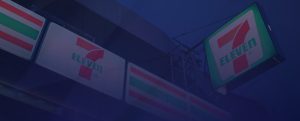Q2 Denver Industrial Market Report
Recent Positive Gain for CPPI
CPPI Index
As of June 2024, the Green Street Commercial Property Price Index (CPPI) increased by 0.7% in May 2024, marking the first increase in the CPPI over the last 24 months. The all-property index, which tracks pricing for institutional commercial real estate, has seen a 1% increase so far this year and is currently 21% lower than its peak in March 2022.
Although the CPPI showed its first increase in over two years, the positive gain was very incremental. This does not suggest that pricing is going to exponentially increase; however, it does show a bounce back from the last couple of years. The trend line suggests the market is gradually becoming more stable. Even though +0.7% isn’t a substantial increase, it is a step in a positive direction compared to the prior two years.
Expect this trend to continue into the second half of 2024, as the Federal Reserve announced in their latest meeting that there is a likely chance a rate cut will be seen in the Fall. Even though the rate cut is expected to be minimal, this is a massive milestone as it will be the first rate cut seen in well over two years, with more expected to come in 2025.
Market Stabilization: 10-Year Treasury Comparison
10-Year Treasury:
Q2 2023: 3.71%
Q2 2024: 4.40% (+18.65% increase from Q2 2023)
The 10-Year Treasury was at 4.32% at the start of Q2 2024 and ended the quarter at 4.40%, as it has consistently stayed in the low-to-mid 4% since the start of 2024. This is expected to decline further after the Federal Reserve’s latest update of an expected rate drop this fall.
Many lenders base their terms on the 10-Year Treasury, which is why staying within a tight range is a good sign. Lenders are more confident in their underwriting when the 10-Year is more predictable and doesn’t show major peaks and valleys.
Market Overview
Despite higher vacancies reported, the industrial market is improving in Denver. Absorption rates are increasing as the construction pipeline slows, indicating a gradual decrease in vacancies ahead. With a notable upswing in transaction volume alongside strong market rents, the market is showing signs of recovery. While construction debt and material costs remain high—attributing to a slowdown in new construction—net absorption has been able to pick back up, furthering the potential for future rent growth.
Focused Metrics: YOY Change (5,000 – 100,000 SF)
Vacancy:
Q2 2023: 3.90%
Q2 2024: 5.22% (+33.84% increase from Q2 2023)
Market Asking Rent per SF:
Q2 2023: $13.25
Q2 2024: $13.68 (+3.14% increase from Q2 2023)
Vacancies are still elevated, but the Denver market is seeing slight progress as new and delivered construction slows down dramatically. Denver’s industrial vacancies are up 33.84% from this time last year for unit sizes 100,000 square feet or less and up 18.75% for unit sizes 100,000 square feet and up. While vacancies have increased across the board compared to this time last year, there is still a notable difference between vacancies sub-100,000 square feet (5.22%) versus over 100,000 square feet (9.5%) for the quarter.
Larger facilities typically take longer to lease up and have a longer turnover period, which is why the industrial market is still experiencing high vacancy rates despite a slowdown in new construction. As absorption rates show a positive increase, the market can expect vacancies to decrease further. Market rents are staying resilient, showing an incremental increase of 3.14% from Q2 2023. Expect Denver’s industrial supply to tighten as new deliveries taper off, rents keep rising, and vacancies continue to improve.
Sales (5,000 – 100,000 SF)
Quarterly Sales Volume:
Q2 2023: $148.09M
Q2 2024: $221.66M (+49.67% increase from Q2 2023)
Velocity increased 49.67% from Q2 2023, with a few large transactions holding up the majority of the dollar volume. Velocity passed $200 million in sales for the first time in a quarter since the end of 2022, a strong sign of improved buyer sentiment. The wave of loan maturities is a significant factor contributing to the increase in transaction velocity, making refinancing a challenging decision for many property owners.
Notable Transactions:
15800 E 40th Ave, Aurora (Buyer: local owner-user)
75,000 square feet at a $11,625,000 price point or $155.00 per square foot.
1110 E 51st Ave, Denver (Buyer: out-of-state private investor)
59,940 square feet at a $10,700,000 price point or $178.51 per square foot.
1314 W Oxford Ave, Englewood (Buyer: out-of-state developer bought for land value)
60,000 square feet at a $11,475,000 price point or $191.25 per square foot.
Market Sale Price per SF:
Q2 2023: $182/SF
Q2 2024: $180/SF (-1.10% decrease from Q2 2023)
The average price per square foot in Q2 of 2024 showed a marginal -1.10% decrease from Q2 2023. As Denver’s industrial supply is becoming more absorbed, forecasts expect a tighter supply. This is a primary reason why industrial pricing has stayed afloat. Owner-users have held the lion’s share of transactions and continue to pay top-of-market prices for properties that allow them to scale their business.
Construction (5,000 – 100,000 SF)
Construction Starts:
Q2 2023: 389,991 SF
Q2 2024: 53,520 SF (-86.27% decrease from Q2 2023)
There is a drastic difference in construction starts compared to this time last year. As of Q2 2024 there was an 86.27% decline in construction starts from Q2 2023. While the decline in construction starts has been more notable for industrial properties 100,000 square feet or less, big-box industrial (100,000 square feet and up) is still experiencing a 25.56% decline compared to the same period last year.
Under Construction:
Q2 2023: 1,286,510 SF
Q2 2024: 842,932 SF (-34.48% decline from Q2 2023)
In Q2 2024, developments under construction showed a -34.48% decline from Q2 2023 for properties under 100,000 square feet. Properties over 100,000 square feet are experiencing similar declines, with a 36.18% decrease compared to the same period last year as well. Currently, 85% of the pipeline consists of properties 100,000 square feet or larger.
Net Absorption (5,000 – 100,000 SF)
Net Absorption:
Q2 2023: 224,923 SF
Q2 2024: 145,259 SF (-35.41% decrease from Q2 2023)
Net absorption in Q2 2024 showed a positive gain of 145,259 square feet, the first net positive absorption since Q2 of 2023. While this is still a decrease compared to the same period last year, it is a positive sign to see more vacancies get filled. As the amount of new constructions and deliveries continues to slow, expect the potential for more rent growth in the quarters ahead as the supply becomes tighter.









